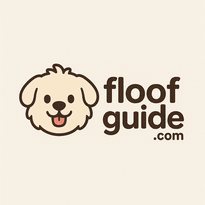Is a Cheese Omelette a Treat or a Trick for Your Dog?
Thinking of sharing your cheesy omelette with your furry friend? It’s a common question for dog owners. While the occasional bite might not harm your pup, there are a few things to consider before making it a regular part of their diet. Let's break down the ingredients and potential risks.
The Components: Eggs and Cheese
Eggs: Generally Safe and Nutritious
Eggs are a great source of protein and essential amino acids for dogs. They’re also packed with vitamins like A, D, and B12. Cooked eggs (like in an omelette) are perfectly fine for dogs in moderation. Avoid raw eggs, as they carry a risk of Salmonella.
Cheese: Proceed with Caution
Cheese is where things get a bit trickier. Many dogs are lactose intolerant to some degree. Cheese contains lactose, which can cause digestive upset.
- Lactose Intolerance: Keep an eye out for symptoms like gas, diarrhea, vomiting, or abdominal pain after your dog eats cheese.
- Type of Cheese: Hard cheeses like cheddar and Parmesan generally have lower lactose content compared to softer cheeses like mozzarella. These might be slightly better tolerated, but moderation is still key.
- Salt Content: Cheese can be high in sodium. Too much salt is bad for dogs.
The Omelette Factor: Hidden Dangers
While eggs and cheese themselves can be okay in moderation, consider what else might be in your omelette.
Harmful Ingredients to Watch Out For:
- Onions and Garlic: These are toxic to dogs and should never be included in an omelette (or any food you share).
- Spices: Avoid spicy ingredients or excessive amounts of seasoning. Some spices can irritate your dog's stomach.
- Butter or Oil: Too much fat from butter or oil can lead to pancreatitis.
- Other Fillings: Be mindful of other fillings like ham (high in sodium) or vegetables that might not agree with your dog.
Is it Worth the Risk?
Even if your omelette only contains safe ingredients, the high fat content and potential for lactose intolerance make it a questionable treat. There are healthier and safer options available for your dog.
Safer Alternatives for Your Pup
- Plain Cooked Eggs: Offer your dog a small portion of plain scrambled or hard-boiled egg. These are a great source of protein without the added risks of cheese and other ingredients.
- Dog-Friendly Treats: Choose commercially available dog treats that are specifically formulated for their nutritional needs. These are a much safer and more balanced option.
- Small Pieces of Plain Cooked Chicken or Turkey: Lean protein is always a good choice. Ensure the meat is boneless and skinless.
- Dog-Safe Veggies: Carrots, green beans, and cucumbers are healthy and low-calorie snacks.
The Verdict
While a small bite of a plain cheese omelette might not hurt your dog, it's generally best to avoid it. The potential risks of lactose intolerance, high fat and sodium content, and hidden harmful ingredients outweigh the benefits. Opt for safer and healthier treats instead. Your dog will thank you for it!

